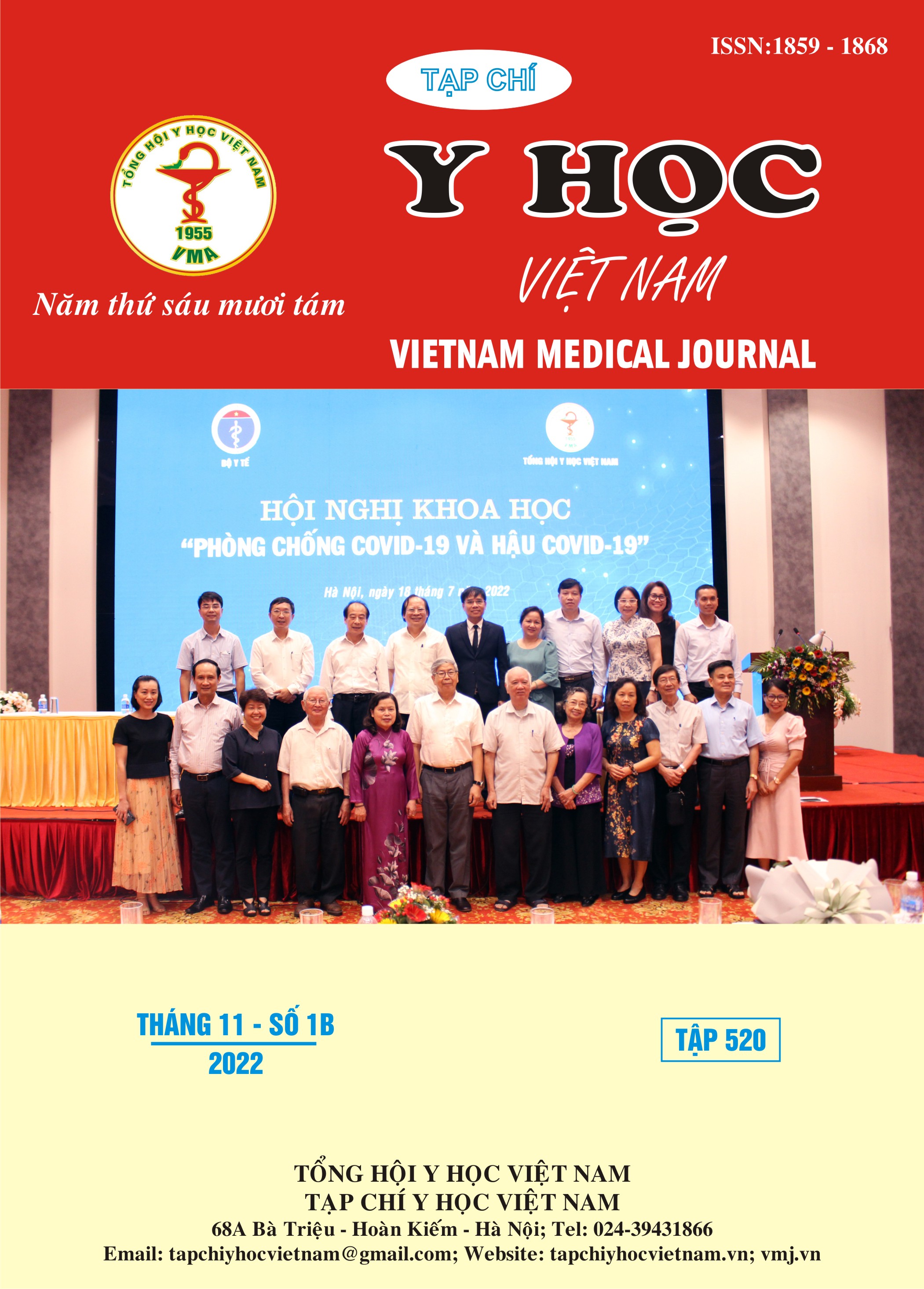ASSESSING THE FIRST STEP EFFECTIVE OF PHYSICAL ACTIVITY IN THE ELDERLY WITH FRAILTY SYNDROME
Main Article Content
Abstract
Objective: To evaluate the initial effect of exercise in elderly patients with Frailty Syndrome. Subjects and methods: Interventional study, randomized control at Hoe Nhai General Hospital from September 2021 to November 2022. A total of 60 elderly patients with Frailty syndrome were included in the study, the mean age was 81.35 ± 7.82. Patients were divided into 2 homologous groups, randomly stratified: (1) 30 patients received exercise interventions according to the exercises of the General Office of Population and Family Planning, (2) 30 patients in the control group received exercises from the General Office of Population and Family Planning, get standard care according to the usual diet and treatment of the underlying medical condition/comorbidities. Symptoms of Frailty syndrome, quality of life… were assessed after 4 months of exercise. Results: at 4 months post-exercise, muscle strength in the exercise group is higher than that of the non-exercise group with an average score of 14.9 ± 8.6 and 11.0 ± 5.8; walking speed in the group with exercise was faster than the group without exercise with average scores of 8.66 ± 5.84 (s) and 11.69 ± 6.59 (s), respectively; endurance and energy scores, physical activity, and quality of life in the exercise group increased compared to the group without exercise intervention. Conclusions: the physical activity intervention in exercise showed a positive effect in improving the quality of life, possibly reversing the Frailty in the elderly.
Article Details
Keywords
The elderly, Frailty syndrome, Physical activity
References
2. Fund UNP. The ageing population in Viet Nam: Current status, prognosis, and possible policy responses. Author New York, NY; 2011.
3. Thắng P, Hỷ ĐTK. Báo cáo tổng quan về chính sách chăm sóc người già thích ứng với thay đổi cơ cấu tại Việt Nam. Tổng cục dân số kế hoạch hóa gia đình. 2009.
4. Pahor M., Guralnik J.M., Ambrosius W.T., Blair S., Bonds D.E., Church T.S., Espeland M.A., Fielding R.A., Gill T.M., Groessl E.J., King A.C., Kritchevsky S.B., Manini T.M., McDermott M.M., Miller M.E., Newman A.B., Rejeski W.J., Sink K.M., Williamson J.D. LIFE study investigators.Effect of structured physical activity on prevention of major mobility disability in older adults: the LIFE study randomized clinicaltrial. JAMA. 2014; 311(23):2387–2396.
5. Cadore E.L., Casas-Herrero A., Zambom-Ferraresi F., Idoate F., Millor N., Gómez M., Rodriguez-Mañas L., Izquierdo M. Multicomponent exercises including muscle power training enhance muscle mass, power output, and functional outcomes in institutionalized frail nonagenarians. Age (Dordrecht, Netherlands) 2014;36(2):773–785.
6. Cameron I.D., Fairhall N., Langron C., Lockwood K., Monaghan N., Aggar C., Sherrington C., Lord S.R., Kurrle S.E. A multifactorial interdisciplinary intervention reduces frailty in older people: randomized trial. BMC Med. 2013;11:65.
7. Tarazona-Santabalbina F.J., Gómez-Cabrera M.C., Pérez-Ros P., Martínez-Arnau F.M., Cabo H., Tsaparas K., Salvador-Pascual A., Rodriguez-Mañas L., Viña J.A. Multicomponent exercise intervention that reverses frailty and improves cognition, emotion, and social networking in the community-dwelling frail elderly: a randomized clinical trial. J. Am. Med. Dir. Assoc. 2016;17(5):426–433.
8. Losa-Reyna J., Baltasar-Fernandez I., Alcazar J., Navarro-Cruz R., Garcia-Garcia F.J., Alegre L.M., Alfaro-Acha A. Effect of a short multicomponent exercise intervention focused on muscle power in frail and pre frail elderly: a pilot trial. Exp. Gerontol. 2019;115:114–121.


